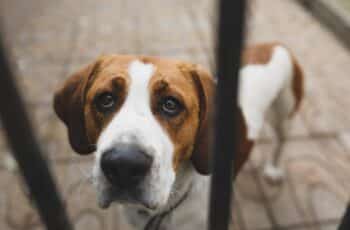Dog poop is a part of our everyday life, but our lifestyle does not have to be so “poopy” for the environment. Our dogs are a part of our family, and caring for them is a central part of our routine. It might surprise some dog owners that they have more impact on the environment than they might have imagined.
Did you know there are things you can do with dog poop that can benefit the planet?Read on to find out how!
Step 1: Learn the Basics Behind Your Dog’s Waste
The first step in becoming a responsible dog owner and bettering the planet is becoming aware of what dog poop is and what it does to the Earth.
What is Dog Poop?
It’s pretty self explanatory; dog poop is your dog’s waste. Animal waste in general is digested excrement and is filled with bacteria and pathogens that have the potential to harm living organisms.
How is Dog Poop Harmful?
Dog poop ranks very high in the list of principal pollutants to the environment. This fact makes us key figures in saving the planet. Ecological management of dog feces could make our existence more sustainable.
Dog poop expels carbon dioxide, which is a gas that contributes to the greenhouse effect causing global warming. When a careless dog owner leaves dog poop on the street, yard, or even under a tree, they’re leaving much more than a mere annoyance.
It goes beyond the foul smell; the bacteria discharged into the air can make people sick and hurt our ecosystem by harming animals and insects. Dog poop can even be washed up into waterways and wind up in tap water (yuck!) Learning about the harmful impact of dog poop is the first step in turning dog poop into an asset.
Step 2: Collect Your Dog’s Poop Properly
Going green with your dog’s poop can be summed up in two basic actions: collecting and disposing.
Collecting your dog’s poop is a virtuous act of civil duty and shows respect for your fellow humans. By collecting your dog’s poop, you’re reducing the possibility of it coming into contact with other humans and animals. This is the first simple action to begin making an impact.
Eco-friendly bags
Although plastic grocery bags seem practical for collecting dog poop, they’re terrible for the environment. Regular plastic bags take up to 1,000 years to degrade, which means they’ll be storing decomposed dog poop for a century. Eco-friendly bags made of compostable materials are a much “greener” option.
Step 3: Dispose Poop in A Proper Location
Once you have your dog’s poop in your possession, disposing of the material will be your next big move. If you throw it away in a regular trash can, the bagged poop will just wind up in landfills. There are other options to dispose of dog poop that are less contaminating and can benefit the environment.
Flushing
The Environmental Protection Agency recommends flushing as the most simple and environmentally safe method for poop disposal. Bear in mind this will depend 100% on your sewage system. Older homes could suffer clogs, so asking a plumber if your sewage system can handle it is a good measure.
If you happen to have a toilet near your yard, you can scoop the poop and flush it right away. After you flush your dog’s stool, it will go on a wild adventure through your city’s sewage system. From there, it goes to a sewage treatment plant to receive a chemical treatment that will kill its bacteria and pollutants.
On the market, you’ll find water-soluble bags of polyvinyl alcohol film that were ingeniously created for this purpose. Each city’s sewage system is unique, so some research is advised.
Dog Waste Disposal System
A dog waste disposal bin is a container that will store and compost a dog’s poop safely above or underground. It uses chemical digesters that break down dog excrement quickly. They’re built of durable and recycled materials that are well suited to handle excrement.
There are numerous dog waste disposal systems on the market, each with pros and cons for you to assess based on your space and convenience. Some are buried in the ground; others can be placed above ground like a normal bin.
Professional Pet Waste Station Service
As cities become more eco-conscious, many provide municipal waste management options for pet parents. Companies like PetWaste Professionals supply and install bins intended exclusively for pet waste in different neighborhoods and communities. They will empty the trash can regularly, restock the dispenser and pick up any waste before removing the dog waste off-site.
Alternatives to Traditional Disposal
If you want to take your eco-friendly choices to the next level, check out these helpful tips to composting bins and alternative methods of disposal.
Dog-Poop Exclusive Composting Bin
It is very dangerous to introduce dog poop in a regular composting bin. You should prioritize dog waste disposal in a dedicated composting bin.
There are a few methods for composting pet waste that will eliminate harmful bacteria and pathogens through the composting cycle and turn it into a material that is good for the environment. However, composting pet waste from a sick dog is not advised.
In a nutshell, composting is about mixing nitrogen-rich material, often referred to as “green” material (in this case, dog poop), with carbon-rich material, often referred to as “brown” material (dry leaves, dry yard waste).
See also


To compost your dog’s waste, you will need a separate composting bin placed away from any plants you or someone you know eats.
Composting Your Dog’s Waste & Avoid Burying
Mix your dog’s poop with dry leaves, yard waste, water, and powdered enzymes to speed up the decomposition cycle. Burying poop is not a good alternative because you would have to bury it very far into the earth for it not to cause damage to the surrounding ecosystems. Unless you do it through an in-ground dog waste disposal system, avoid burying your dog’s poop.
Bokashi Composting
“Bokashi” is a popular composting method that involves fermentation. It differs from regular composting in that it uses no oxygen. A Bokashi composting bin must be completely sealed from oxygen.
Here are the composting steps done in Bokashi Composting:
- Alternate layers of pet waste with microorganisms (lactobacilli and yeast), and mix with wheat bran or wheat germ (called “Bokashi bran”).
- Decompose waste through anaerobic process.
- Once the material is composted, it will be a very acidic pre-compost material that can be used moderately or mixed with dry soil.
Bio Gas Harvesting
Bio Gas is a renewable energy source for heating, generating electricity, and even fuel for vehicles. It’s an alternative to fossil fuels that is still in the experimental stage. Many environmentalists believe it could be a sustainable solution to managing dog poop. This could turn dog feces into something our economy can rely on.
Some cities and municipalities may be considering this alternative and creating a Bio Gas harvesting system of their own. Do your own research to see if your municipality has a dog waste drop-off or pick-up system for Bio Gas harvesting.
Dog Poop-power: An Environmental Force
Wherever there are dogs, there is poop. Dog poop is as much a part of our lives as our fluffy fur balls are. Proper Collecting and disposing of dog poop are signs of a mindful pet owner who cares about the future of the planet.
As strange as it may seem, something as common as dog poop can benefit the environment. Imagine a vehicle running on dog feces or a movie theater powering its productions entirely on the droppings of a chihuahua or a bichon frise.
It may sound like science fiction, but as investors are increasingly encouraged to move away from fossil fuels and toward renewable energy, dog poop could wind up saving the planet.


